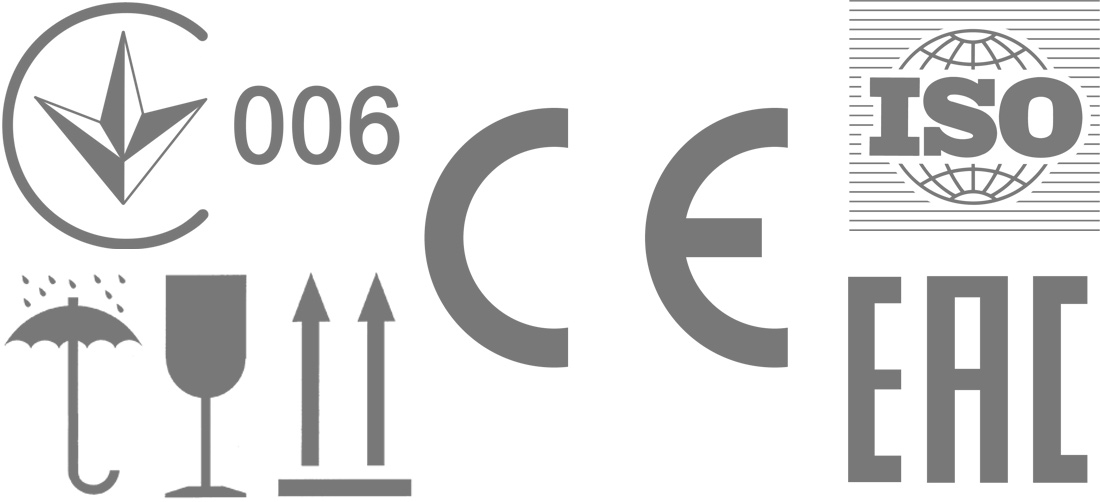
Certification of products
The EDI company sells in the markets of the European Union.
Both of these markets has a distinct from each other admission procedure to the sales of market products, which provides among other things, certification.
The EDI company has partnerships with government and independent certification bodies that provide services of products certification, which is necessary for the market launch on their local markets.
The European Union standards
For the importation of products into the territory of the European Union countries it is necessary, first of all, to carry out the certification of products in accordance with the standards of the European Union (hereinafter “EU”).
Before the importation into the EU the EDI reduced to the appropriate certification office which is our partner in the area of certification to checks Your products for compliance with EU standards.
The company’s specialists will prompt what documents and what information about the product you need to prepare for the inspection (parameters, sizes, composition, method of manufacturing, etc.), will report on the possibilities of certification and also how much does it cost. After that, we will select the samples entitled to certification of products.
Term and procedure of certification is determined in each individual case. Upon completion of the inspection will be obtained checking protocol where will be indicate whether your products with all necessary EU standards. If the product do not conform then indicates the parameters that do not meet the standards together with the parameters that shall comply with. On the basis of this protocol, our company draws up a CE DECLARATION OF CONFORMITY and if necessary mark products with a conformity mark CE.
The CE marking is a special passport, which allows manufacturers freely distribute their products on the European market. It shows that the products meet minimum safety requirements and if you having it you can import your products in all EU countries. This marking is assigned only to products that controlled by the European Commissions on public health, safety, environmental protection, but these include more than half of imported products in the EU at the moment (e.g: tools, machines, equipment, toys, etc.). If the European directive is applicable to your products – CE marking is required. Your products should be marked with the CE mark as proof of conformity with EU directives. Otherwise, we could not sell it on the local market of the EU.
All other products should meet the requirements of the General Safety Directive of the EU Products. Products marking is carried out by adding the letters “CE” in concrete products entering into the European market (recognized by EEA countries (European Economic Area))
There are two types of the CE mark:
- the CE mark turned out by the manufacturer
- the CE mark produced by an independent certification entity
The CE mark turned out by the manufacturer:
СЕ
The CE mark is applicable for products, compliance of which could be declared by the manufacturer with European directives. At the same time checking products by an independent authority of certification is not need.
The mark is put on the product by the manufacturer or its authorized representative. Manufacturers that are not in the EU, may authorize an independent certification authority to make out documentation and confirm of products compliance with the European directives. In this case, the CE mark is applied without the identification code of an independent certification authority.
technical documentation and conformity declarations in accordance with the directives of the EC.
The technical documentation and declaration of conformity are saved for 10 years after the release of the product.
The CE mark, produced by an independent certification authority: CE 0000
For certain products category provides the necessary safety examination and control of manufacture by an independent certification authority.
Independent certification authority receives and checks the technical documentation, issues the declaration of conformity with the EU directives and is responsible for the full safety of the documents for 10 years.
As evidence that the necessary inspection of production was carried out by an independent certification authority, the marking of the product is produced by individual mark of this certification authority (CE mark in combination with an identification code of an independent certification authority that is registered in Brussels). So sign marked only products that correspond to the “Single European standards’ and which provides inspection and certification of the independent certification body. So such mark labeled only that products which will be conform to the “European standards” and for which provides the inspection and certification of the independent certification authority.
The CE mark in combination with an identification code of an independent certification authority is permitted only for products specified in the directives. These products pertained to verification and controlling in the manufacturing process by an independent certification authority.
The requirements for sales on Arabian markets
In many countries strictly watch the quality of halal. When the products undergo certification procedures and if violations are detected, the manufacturers are assessed.
In the CIS the halal industry is growing only 10-15 years, whereas in America and Europe – is the norm of public life.
In Ukraine, the the systems of products inspection carries out by “The Centre of Research and Certification of halal “Alraid” in cooperation with the Spiritual Directorate of the Muslims of Ukraine” Ummah”, which operates as part of the” Committee for Fatwa at DUMA “Ummah”. It consists of imams with the Sharia education. From this committee formed commission which goes to the production to study the issue of conformity of production technology standards “Halal”. Of this committee forms the commission which goes to the manufacture for inquiry of conformity of production technology the standards of “halal”.
Certain conditions should be done through to the end that meat and poultry will meet the standards of “halal”. “Halal” (permitted) should not consist of an obviously banned ingredients (“haram”).
To an obviously banned ingredient pertain:
- carrion
- blood
- pork
- animals killed by strangulation or by another animal; died as a result of high voltage, shock or falling
- the carnivorous animals (wolf, lion, tiger, etc.) and predatory birds (falcon, hawk, eagle, and others.)
- meat of dogs, donkeys and mules
All these bans relate not only to the main raw material (meat and fat), but also apply to auxiliary materials and materials such as additives, fillers, spices, natural sausage covers, gelatin thickening agents and so on.
Sometimes manufacture meets experts with “all set” – the manufacturer previously figured out what conditions are necessary for compliance with the “halal” standard and only then applies for certification. There are also an opposite cases where the manufacturer assurance in their ability to pretend for certification is based on commonplaces stereotypes about Muslims and their food standards.
What is “Halal”?
The word “halal” (after the Arabic “al-halal” – “permitted”) – a term designative primarily the safety, purity, the health benefit and deficiency of harmful preservatives and additives. By the word “halal” in the Islamic life they usually meant the meat of animals eating of which comply with Islamic food bans and also meets the requirements of expiration dating period, because the products are highly-controlled by the appropriate halal – committee.
The Islamic feeding rules are based on the Koran and took from the Hadith books that are narrative about the behavior and the sayings of Muhammad (Peace be upon him) and obtained by extrapolation and conclusions of the Koran and the Hadith texts, made by the Islamic lawyers.
Interrelation

Discussion

Partnerships

Result

